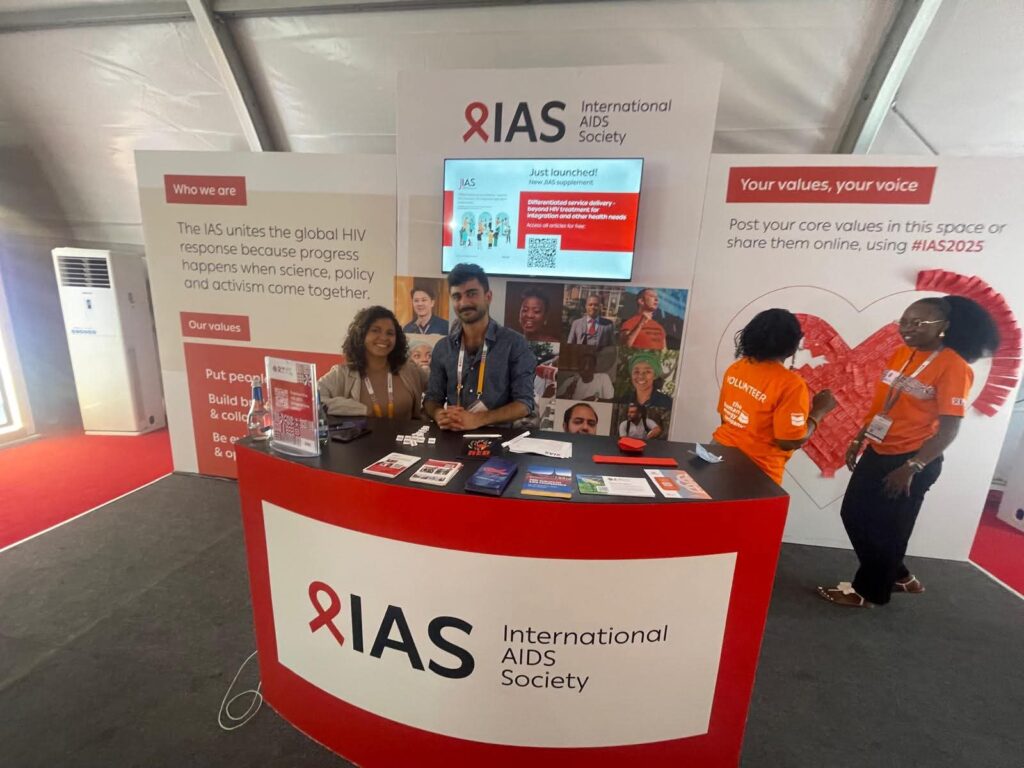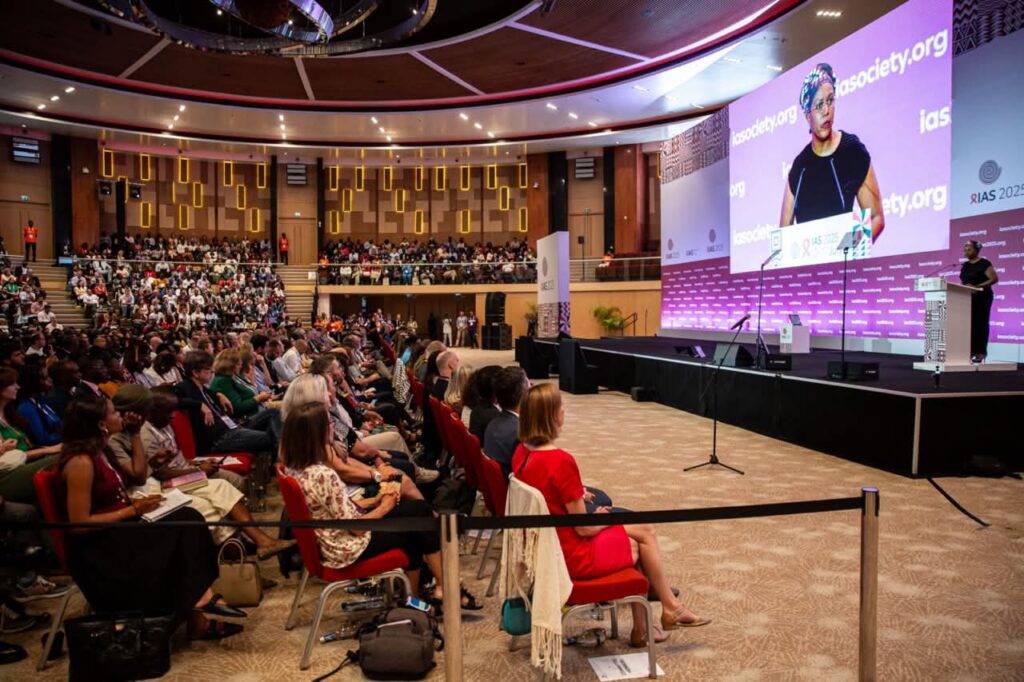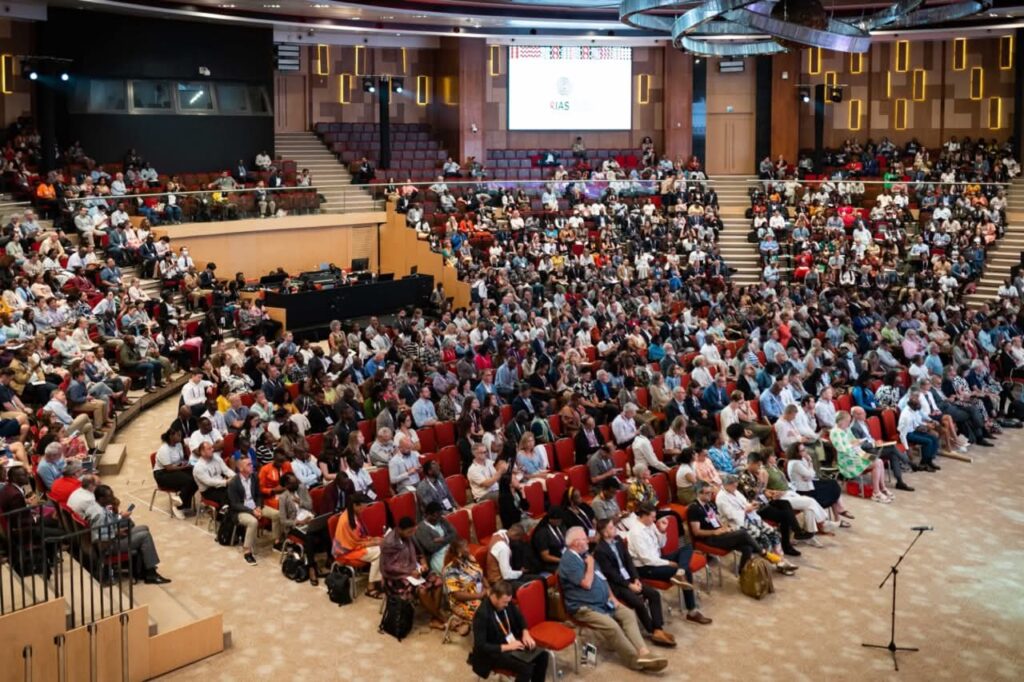…As the 13th International AIDS Society Conference convenes in Kigali, Rwanda’s story of rebuilding its health system from the ashes and exceeding global HIV targets offers both lessons and hope for the Global South.
By Bunmi Yekini

Three decades ago, Rwanda was reeling from genocide and the collapse of its health system. Today, it’s being hailed as a continental trailblazer in HIV response, achieving what few nations—African or otherwise—have done.
This week, as Rwanda hosts the 13th International AIDS Society (IAS) Conference on HIV Science (IAS 2025), the country of just over 14 million has more than its hospitality to showcase—it is one of only seven African nations to have met the UNAIDS 95-95-95 targets, and did so ahead of schedule.
“We have been building from scratch through leadership, partnerships, community-led approaches, and cross-sector innovation,” said Dr Sabin Nsanzimana, Rwanda’s Minister of Health.
“Together, we met the UNAIDS 95-95-95 targets and continue to harness cutting-edge science to deliver more targeted, integrated interventions.”

A Data-Driven, People-Centered System
Of the estimated 230,000 Rwandans living with HIV, 96% know their status, 98% of those are on treatment, and 98% of those are virally suppressed. Nearly all HIV-positive pregnant women—99%—are receiving antiretroviral therapy, a feat that is helping eliminate mother-to-child transmission.
This success is no accident. Rwanda built an early and inclusive foundation for its HIV response. As far back as 2004, it was introducing patient education, community follow-ups, and digital health records, ahead of many wealthier nations.
“There were required two-to-three-day educational sessions for patients so they could understand the science,” explained Dr Kathryn Anastos, founder of Women’s Equity in Access to Care and Treatment (WE ACTx).
“Each patient had a buddy who knew their status and helped with adherence. Community health workers followed up on anyone who didn’t return to care.”
This grassroots approach is supported by a national Open Medical Record System (OpenMRS), allowing real-time data sharing and feedback loops across the country’s health infrastructure.
When the World Health Organization released its “treat all” guideline in 2016, Rwanda responded swiftly. Data presented at the conference showed the country recorded the highest immediate uptake in rapid treatment initiation (a 34-percentage point jump), outpacing Kenya and Burundi.
Targeting the Present, Shaping the Future
In recent years, Rwanda has added recency testing to its toolkit. Through a partnership with ICAP at Columbia University, the TRACE initiative enables the health system to identify whether a person’s infection is recent and trace sexual contacts for prompt intervention.
Between 2021 and 2022, 1,238 newly diagnosed individuals across 60 health facilities were enrolled. Their partners were tested, and new infections were mapped more precisely, allowing for data-informed, targeted prevention strategies.
“No implementing partner is allowed to duplicate efforts. Every HIV intervention is centrally coordinated,” said Dr Anastos. “That level of structure ensures efficiency and impact.”

Remaining Gaps and New Challenges
Despite its achievements, Rwanda still faces hurdles. HIV prevalence remains highest among key populations—35% of female sex workers and 6% of men who have sex with men.
Although PrEP (pre-exposure prophylaxis) was rolled out nationally in 2019, retention remains uneven. MSM have the highest 12-month retention rate at under 60%, while rates among adolescent girls, young women, and sex workers hover between 45–50%. A significant drop is seen in other groups.
“These trends tell us we must develop tailored, supportive approaches to help people stay on PrEP, especially in communities where long-term adherence is a challenge,” said Dr Nsanzimana.
The country is also navigating a changing disease landscape. Since 2015, non-communicable diseases (NCDs) have surpassed infectious diseases as the leading cause of death.
“It is now a double burden,” Dr Nsanzimana acknowledged. “We have reduced HIV mortality, malaria, and TB. But people are living longer, often with NCDs. Our next chapter is strengthening the health system to manage both.”

Sustaining Progress Amid Funding Cuts
With global health funding declining, Rwanda has adapted—cutting back on some activities, shifting training online, and increasing domestic health financing through the national treasury.
“We need to continue funding and financing our programmes—this is an investment, not a cost,” said Dr Nsanzimana.
“We must bring the science to the people—long-acting tools, community-led responses, differentiated service delivery. Because this works.”
As the world looks to end AIDS as a public health threat by 2030, Rwanda’s story is a beacon for what’s possible: a low-income, post-conflict nation transforming not just its HIV response, but its entire health system—through vision, data, and people power.
